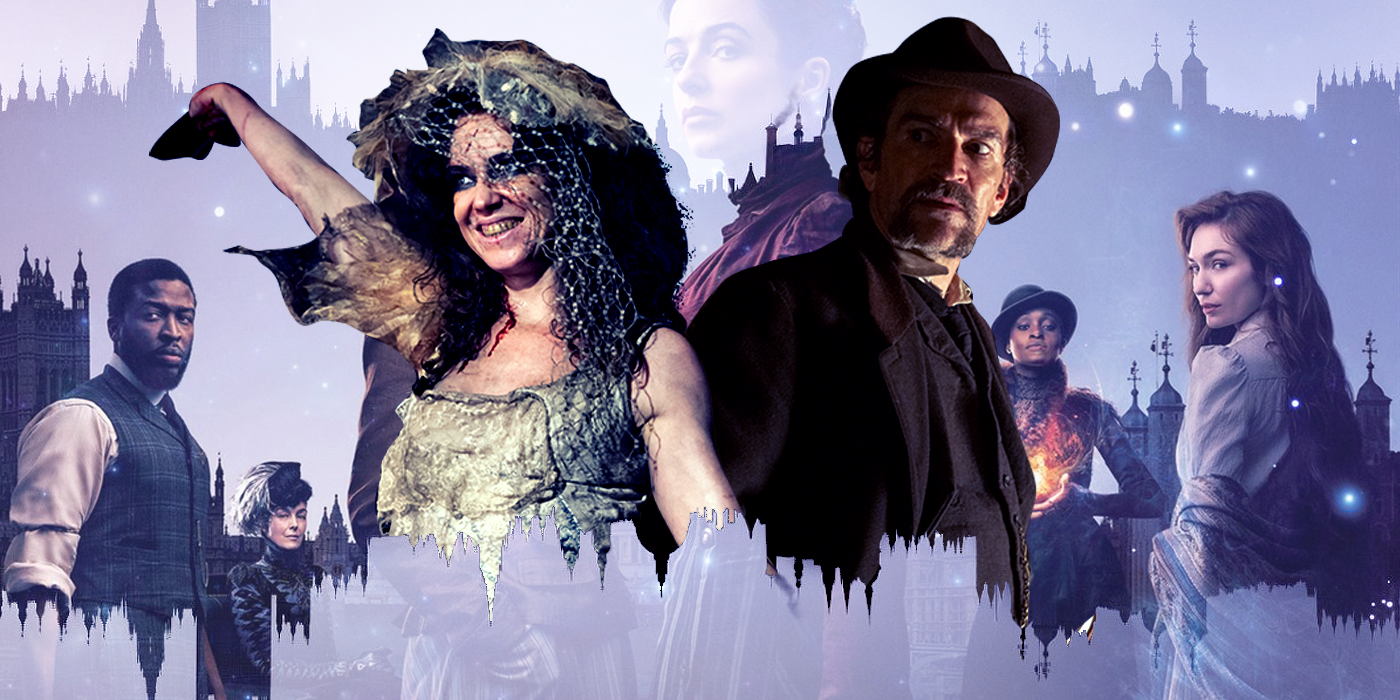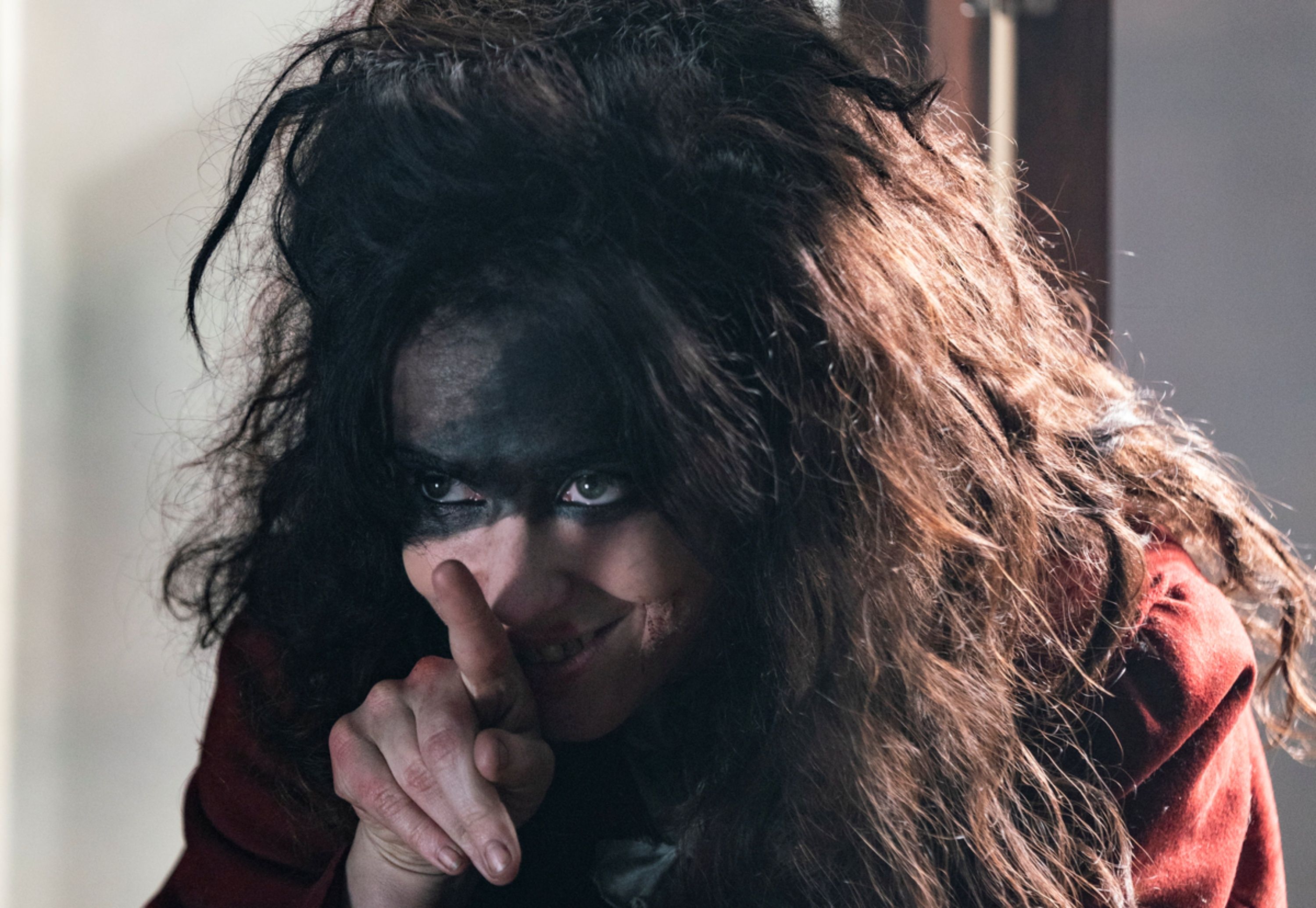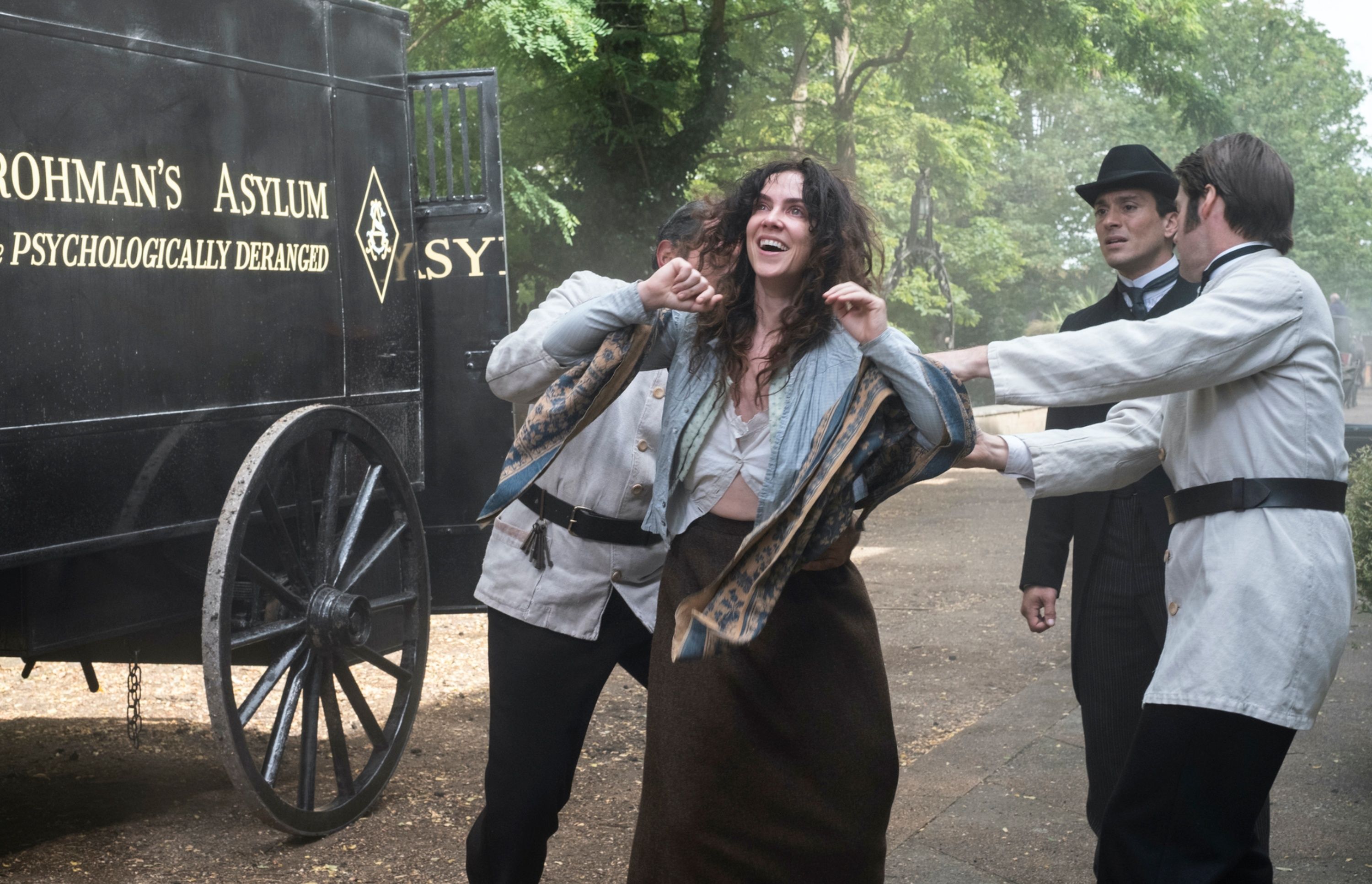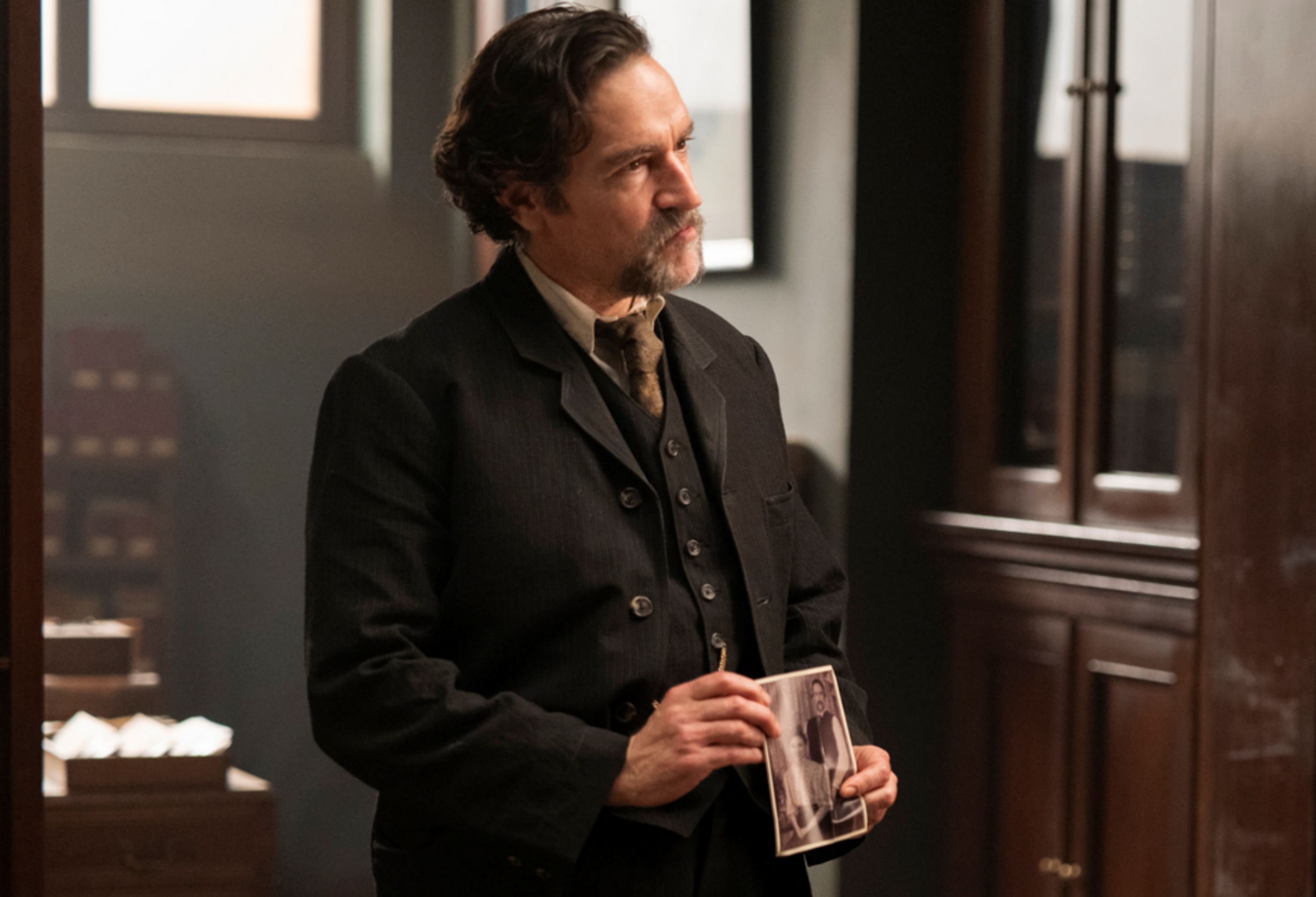The HBO sci-fi/adventure series The Nevers is set in 1890s Victorian London, three years after a supernatural event has mysteriously given certain people, most of whom happen to be women, various unusual abilities. At its core is the friendship between Amalia True (Laura Donnelly), a resourceful widow who never shies away from a fight, and Penance Adair (Ann Skelly), a brilliant inventor whose creations are often far ahead of their time, as the two women attempt to find and protect the gifted from those who wish to annihilate them.
During a virtual junket for the new show, Collider was paired up with another press outlet to chat with co-stars Ben Chaplin (who plays Inspector Frank Mundi, a man torn over what to make of The Touched) and Amy Manson (the seemingly crazy and definitely murderous Maladie, whose power is rooted in pain) about what got them excited about The Nevers, why Maladie is so focused on her mission, keeping such a wild character grounded, why his past as a boxer informs everything that Frank does, and whether audiences will have more of a sense of these characters by the end of the first half of the season.
Question: There are so many story threads and characters and things to explore with this, and a blend of all sorts of genres. What was it that most drew you to The Nevers? What most excited you about this project?
AMY MANSON: It was the unknown for me, the fact that there are supernatural elements to it and abilities, and seeing how that could fly off the page and transition. For myself, I thought that was really exciting. When you got a script, sometimes you’re hopeful that you’ve got the beginning to the end and you know your journey over four or six episodes. With this, we only had Episode 1 initially, but we were gifted all of these beautiful, huge ideas from the producers. So, I was excited.
BEN CHAPLIN: It was a source of a leap of faith, just from what I was told or understood about where it would go. It was difficult to get your head around it. It turned into this leap into the unknown, but what we did have, in terms of the first actual script, was exciting. For me personally, it was something I’d never done before. I have gotten to a point now where I’ve started to play the same character. I’m not saying that I’m running out of humanity, but I’m running out of roles that don’t bear a strong resemblance to previous characters that I may have played. This one doesn’t bear much resemblance to anything I’ve done before. And in terms of the genre-busting, multi-genre facet of it, it was exciting. It’s something I didn’t have any grounding in, so it was an exciting challenge and a leap of faith. Tonally, alone, I was not familiar with how to land it, to be a real person in a world gone mad.
Amy, Maladie is a murderer and she does cruel things. Do you consider her to be a villain at all? If not, why not?
MANSON: No, I don’t consider her the villain. She’s got her objective. She gets sidetracked at times, but I wonder how much I would fight for justice, if I went through what she went through, at the hands of the male patriarchy. I wonder how much I would fight. I’m not saying that I would go out there and kill people, left, right and center, but it seems to be the repercussions of a woman seeking justice. For her to fight for her freedom is a huge thing. And also, seeking revenge is a big thing for her too.
Since no villain ever sees themselves as a villain, how would you say she sees herself as the hero of her own story? What do you think she feels about her mission?
MANSON: We see her as Sarah. Her moment before she gets put in the asylum vehicle is almost her coming-to-Damascus moment. She thinks she’s been chosen and she saw God. Her whole reason for breaking free is to try to understand why she was the chosen one. And then, all of a sudden, Mary comes into the equation with a beautiful voice that can control Maladie, and that makes Maladie feel love and beauty, which is the antithesis of what Maladie wants to feel. That’s why I agree that you can never play the villain. You play the baddie. Her mission is clear. She wants answers, as well as seeking revenge. She wants answers as to why she was chosen. That’s why she’s determined to get these answers, in whatever way or form that she can.
Looking back at the history of how women with mental illness were treated and how they were misunderstood a lot, did you study case histories or look back at that to inform how you shaped your performance?
MANSON: I read a lot about the case of Aileen Wuornos, who Charlize Theron played in Monster. I even looked at her last speech and how much she felt she was just chosen or affiliated with God. She had a last speech for journalists, the day before she was executed, and she believed that. People think that Maladie is mad or she’s a terrorist, but I think she’s just misinformed. She’s crazed because she doesn’t have answers. She thinks she’s Jesus, in a way. She’s had this pain inflicted on her, though not on a cross, for a certain reason. Her way is to suppress that, so much. It’s only Mary who’s the person that manages to open up old wounds within Maladie.
When you play a character like Maladie, is there too big or too far to go with her? Did you have a gauge for when to reel her in?
MANSON: I spoke to the producers about that. In the initial scene where you see Maladie, she’s having fun, as she’s holding the mirror up to society and to these men who abused her. I did say, “I hope that she doesn’t vibrate on this level, the whole through. Where’s the grounding?” Somebody who’s having manic episodes, almost constantly, never truly sleeps and never truly stops. I think that’s it. She’s just got one mission, and she’ll be damned if she doesn’t succeed in it. It’s definitely energetic. It’s a hard headspace to be in. Especially in that stage sequence, it’s holding that mirror up and reliving what she went through, at the hands of this evil doctor. That was hard to do, take after take, for that to be rooted in truth. But also, with Maladie, she can just turn a switch and go off somewhere else, and there needed to be a truthful element in that, as well.
Ben, we learn a few little pieces of information about Frank Mundi in the first few episodes. We learn that he was a champion fighter and also we know he has this history with Mary that’s caused a lot of heartbreak. How do you think those two traits shaped him as a person and also as a police officer?
CHAPLIN: That’s a good question. Boxing is a martial art. I don’t do it, by the way. My dad was quite a serious boxer. He was a champion amateur boxer, so I grew up with it. It’s a control against the odds of fight or flight adrenaline. You gain a certain amount of control over that with boxing training, so there’s something slightly superhuman about boxers, in terms of just getting hits and staying calm. That informs everything you do. If you box, then you’re not scared of physical confrontation in the same way as somebody who isn’t trained might be. I think that informs everything that he does. Boxing was very common in those days, so you were very likely to come up against another boxer. In terms of his relationship with Mary, there’s a spoiler alert here, but I think they do have genuine love for each other. I think they got together through love, but found out later that, because of the things that Frank hasn’t come to terms with, they’re less compatible than they might’ve thought they were, or that Frank had hoped they would be. I think it’s a genuine relationship built on genuine love.
By the time we get to the end of these six episodes of Part 1, will audiences have a very different impression of your characters?
CHAPLIN: Yes, more so with [Maladie] than me. Maladie’s journey is greater, but you’ll definitely have a different view of us.
MANSON: The trajectory changes, boldly.
CHAPLIN: By the end of Episode 5, we’ve both gone on a journey.
MANSON: I think that’s my favorite episode. It just keeps getting better and better, and the stakes get higher.
The Nevers airs on Sunday nights on HBO.




